8 Dangerous Apps to Check for on Your Child’s Phone
 Supawadee56 / Shutterstock
Supawadee56 / Shutterstock
Parents face a tech problem these days. Kids want mobile devices ASAP, but they also need to stay safe and avoid content and connections that are inappropriate for them. As kids mature into teens, their desire for independence grows even faster, and this can lead them to migrate toward more dangerous apps, often without realizing the risks.
Parental control software can help, especially if you work to find apps that offer exactly the level of security and watchfulness you need. Although some parents would like to give their kids more freedom, especially as they get older, and are mostly concerned that their teens don't start using any "bad" apps.
What makes an app bad, exactly? What apps should parents watch for on their kids' phones as a warning? It's tough to know what to watch for, which is why we've put together a list of the worst apps for kids (and why).
Note: If your child really wants to use one of these apps, try to have a conversation with them about why they want to use it and the risks associated. Unless your kids are outright trying to hide something, cooperative efforts can help find alternative apps that are safer to use. Continue reading to learn about 8 Dangerous Apps to Check for on Your Child’s Phone.
TikTok

Here's a difficult one. TikTok is an immensely popular app that surfaced about three years ago. It specializes in short, 15-second videos that anyone can create and use for all kinds of purposes. A lot of the videos are just people goofing around and can garner a few laughs, which is one reason that the app has become so popular with kids (and why TikTok videos show up on so many kid-focused channels).
The problem is that TikTok has also become home to scams, ones that you don't want your kids to get involved in. One popular scam uses stolen videos of women dancing or working out, then routes viewers to Snapchat pornography, and from there to adult dating sites (making money via clicks along the way). Others may demand PayPal money to activate special Snapchat accounts with more nudity, etc. Another scam has people impersonate TikTok "celebrities" that may be familiar to your kids, and try to scam them out of money, sign-ups, or information.
The problem is that TikTok remains a popular app from a social perspective, so forbidding it outright could lead to a messy scenario. TikTok is trying to get a handle on its spam, so if you decide to leave the app be, you must talk to your kids about what dangers TikTok can create.
Hide It Pro (HIP)
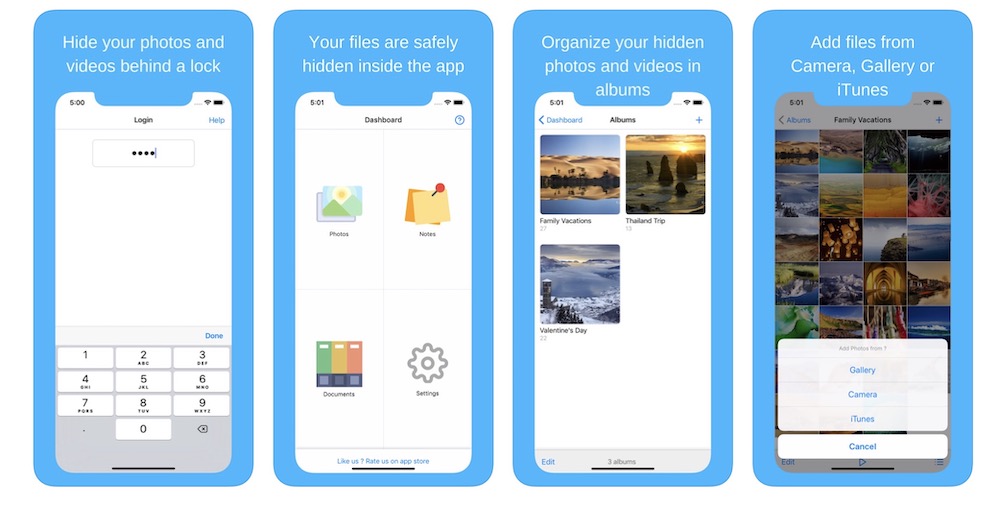
HIP is an easier case. It should never be on your kid's phone, and it's a big warning sign if you find it. HIP stands for Hide It Pro, an app that pretends to be a basic music manager for songs but is actually an app designed to hide photos, videos, text messages, and even other apps. There's a whole family of these "vault" apps, and your kids shouldn't be using any of them, but HIP is one of the most popular for its wide array of capabilities and locking options.
While it's important to respect the privacy or your kids and teens, using HIP means they are actively trying to hide content or conversations, which is where trust starts to break down. HIP is a warning sign that you need a new approach to mobile management with your kids, one that doesn't involve HIP.
False Calculators
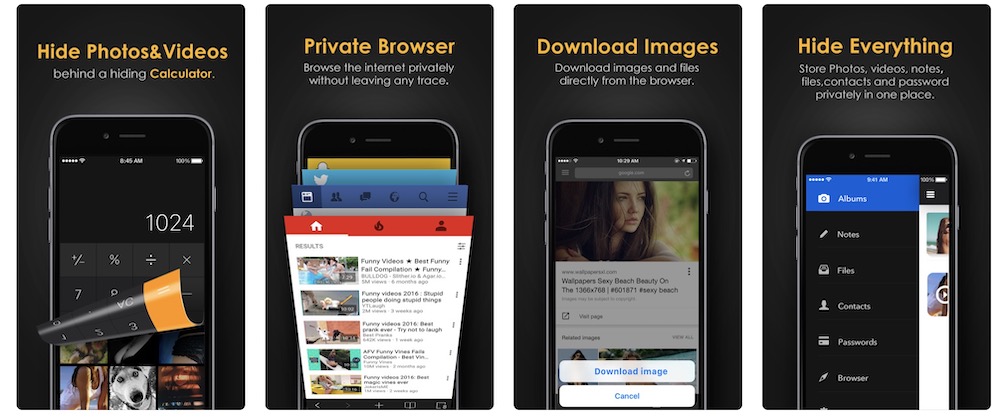
Calculator vaults are sneakier versions of HIP. They pretend to be calculator apps, when they're really hiding places for videos and photos.
Usually, you just have to type the right passcode into the "calculator," and the app unlocks. Calculator% was one of the best examples, and was removed from the App Store, although many still remain.
Parents should be wary of apps that are imitating native functions – phones have a calculator app, there's no reason to download another simple calculator. Again, it's all about the deception.
Kik
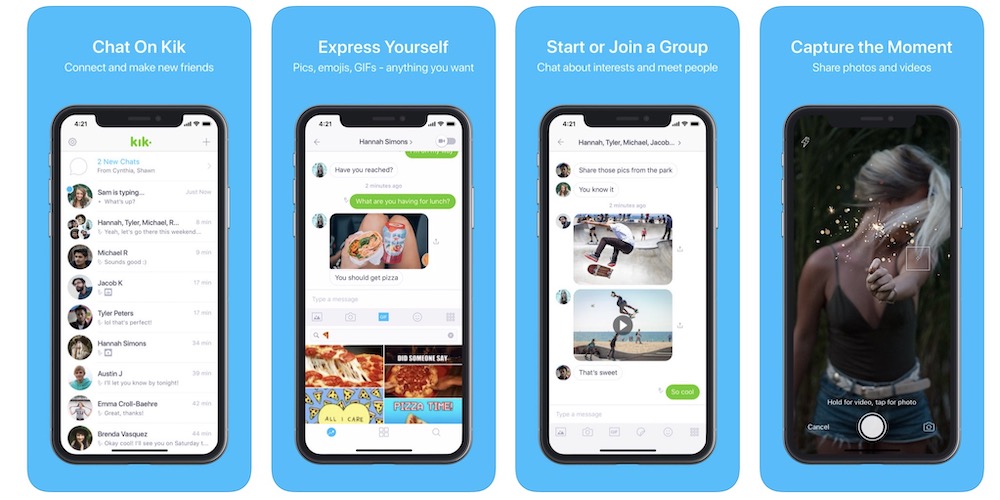
Kik is a messaging app that has an unfortunate reputation for sexting. You can also send files and photos over the app, so there can be a lot of nudity on Kik as well. It's a bad app for your kids to be using, especially younger kids who could be targets for predators. Older kids may try to use Kik as a replacement for dating apps they know they'll get in trouble for using. Either way, it's a warning sign.
Omegle
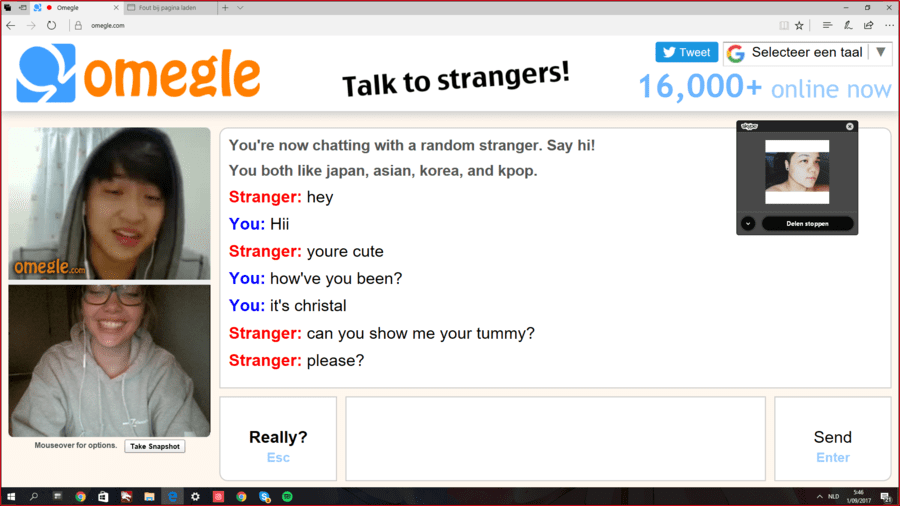
Omegle isn't exactly an app, but you should still make sure your kids aren't using the service. With a tagline that says "Talk to strangers!" you can guess Omegle isn't the healthiest place online. It's a free-for-all chatroom where anything goes, including options for both text and video. That's given Omegle a poor reputation in recent years, but it's just one of these meet-a-stranger chatrooms, which include ChatRad, Meet Me, Monkey, Chatous, Chatroulette, and many others, with more being added all the time. Many of these apps are notorious for pornography, bullying, and all sorts of undesirable behavior. Make sure your kids stay away from them and keep up on the latest chat rooms/dating sites if possible.
ShamChat
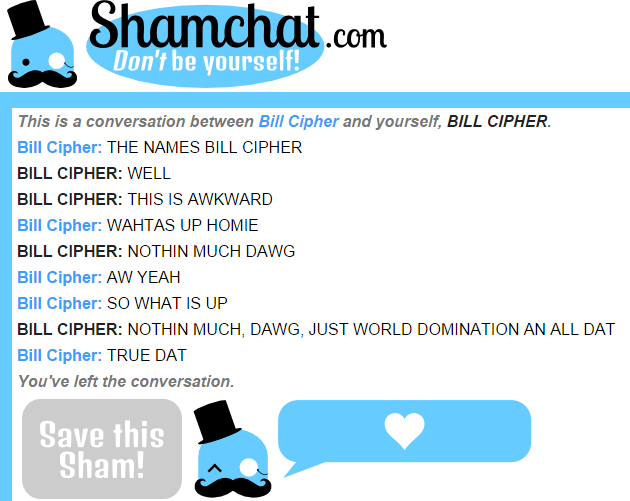
Again, while not exactly an app, ShamChat is another messaging platform that you don't want your kids to be using. Its entire purpose is to deceive the people that you're talking to by pretending to be someone else.
It's a draw for kids that want space to experiment and find themselves, which is understandable. However, as you can imagine, it's also a place with a lot of predatory behavior and conversations you really don't want your kids to get into – sexualized and otherwise.
There are a lot of messaging platforms out there, and it's entirely possible to find one without the issues that ShamChat has.
App Hiders
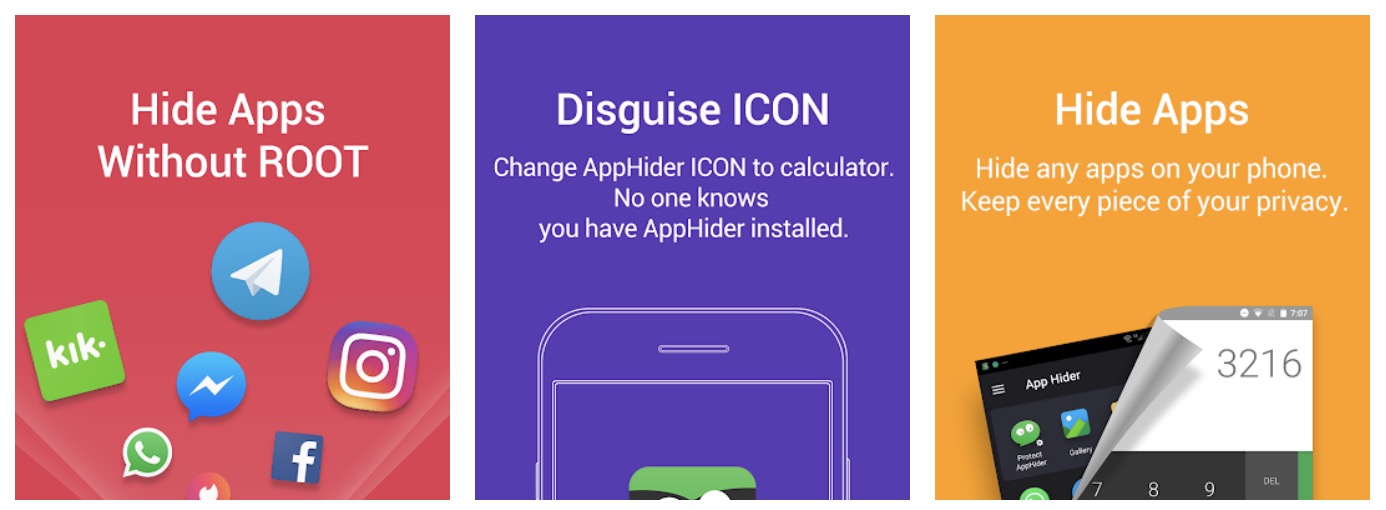
App hiders are designed to (you guessed it) hide apps from the home screen so they can't be seen. Sometimes kids try to use these apps to hide other apps they don't want their parents to see (including many that we've already mentioned here). They have a number of tricks they can employ to hide apps, like the ability to change their app icons on the Home screen.
Vora
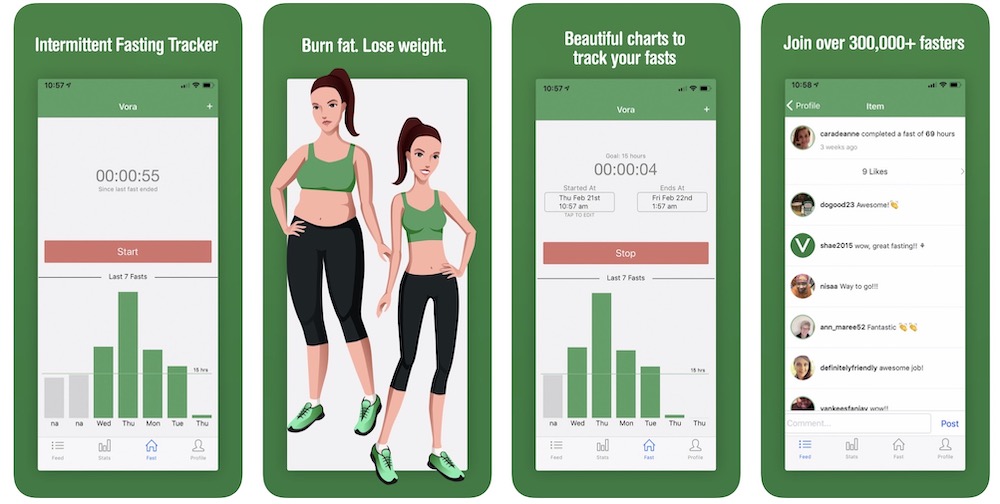
It's not in quite the same category as many apps we've discussed, but parents should still be wary of Vora. Vora is a weightloss social app that's focused on, well, not eating. The app alone isn't exactly dangerous, but it's not really meant for kids or teens, and it could be a sign of eating disorders or unhealthy body obsessions. It's definitely an app that should spark a serious conversation.
